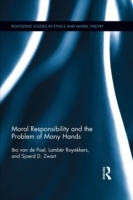When many people are involved in an activity, it is often difficult, if not impossible, to pinpoint who is morally responsible for what, a phenomenon known as the 'problem of many hands.' This term is increasingly used to describe problems with attributing individual responsibility in collective settings in such diverse areas as public administration, corporate management, law and regulation, technological development and innovation, healthcare, and finance. This volume provides an in-depth philosophical analysis of this problem, examining the notion of moral responsibility and distinguishing between different normative meanings of responsibility, both backward-looking (accountability, blameworthiness, and liability) and forward-looking (obligation, virtue). Drawing on the relevant philosophical literature, the authors develop a coherent conceptualization of the problem of many hands, taking into account the relationship, and possible tension, between individual and collective responsibility. This systematic inquiry into the problem of many hands pertains to discussions about moral responsibility in a variety of applied settings.

